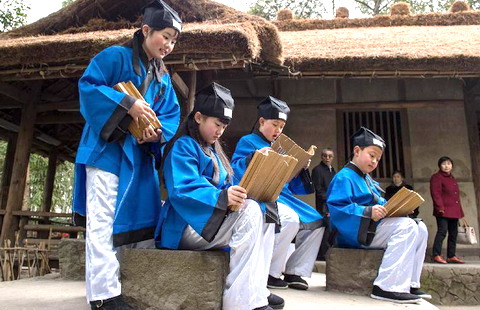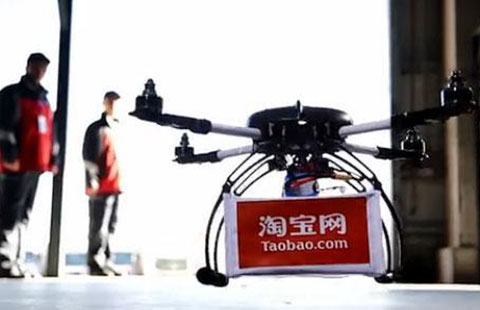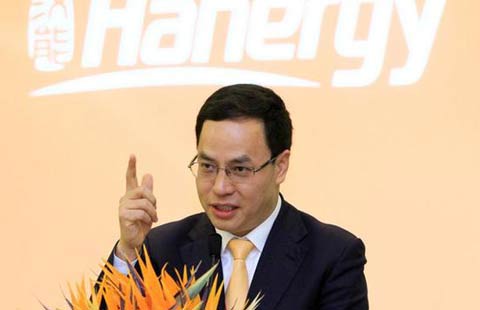Backgrounder: China's major railway construction projects in Africa, Latin America
Updated: 2015-02-27 11:38
(Xinhua)
|
||||||||
BEIJING - After rapid development over past decades, China's railway industry has made great progress in both technology and the various railway services, and has taken solid steps in developing international markets by undertaking large construction projects abroad.
The following are some of the major railway construction projects undertaken by China's railway industry in Africa and Latin America.
Tanzania-Zambia railway
In the 1960s-1970s, the Chinese government sent thousands of engineers and construction workers to help build the railroad linking Tanzania and Zambia after both had shaken off their colonial rulers.
The construction of the 1,860-km broad gauge Tanzania-Zambia railway, which was called a "road of friendship" by local people, started in October 1970 in Tanzania and Zambia, and was completed in June 1975, taking four years and eight months to complete.
Some 50,000 Chinese traveled thousands of miles to help with the construction efforts and 65 of them lost lives in the process.
Apart from personnel support, the Chinese government also provided funds, equipment and materials for the maintenance and upgrading of the railroad.
The Tanzania-Zambia railway has become one of the main trunk lines in southeastern Africa, and a key link connecting railroads in countries of the region.
East African railway network
China in May 2014 signed a deal to build a rail link worth 3.8 billion U.S. dollars between Kenya's Mombasa and Nairobi, which is actually the first phase of a line that will eventually connect Uganda, Rwanda, Burundi and South Sudan.
Under the deal, Exim Bank of China will provide 90 percent of the cost to replace the decades-old British colonial-era line with a 609.3 km standard-gauge link, while Kenya will fund the balance of 10 percent.
The Chinese-built Standard Gauge Railway project is intended to facilitate transportation and boost trade in the eastern Africa region.
It is expected to cover a distance of about 2,935 km, featuring passenger trains with a speed of 120 km per hour and freight trains designed to move at 80 km per hour.
Angola
In 2015, a 1,344-km railroad project spanning the African country of Angola was complete and was put into operation.
The line, built by the China Railway Construction Corporation (CRCC), boasts the fastest traveling speed in the country and will serve as a significant economic corridor there.
The railway linking the coastal city of Lobito in the west and Luau bordering Angola is the second longest railway built by a Chinese company for Africa, after the Tanzania-Zambia railway.
The railway, built since 2004, will be linked with the Angola-Zambian railway and the Tanzania-Zambia railway in the future.
Transcontinental South American railway
In July 2014, China, Brazil and Peru agreed to build a railway that runs across the South American continent, which is aimed at linking the Brazilian Atlantic coast with the Peruvian Pacific coast.
The agreement came after a meeting of Chinese President Xi Jinping and his Brazilian and Peruvian counterparts, Dilma Rousseff and Ollanta Humala.
The three leaders exchanged views on boosting the construction of transport infrastructure in South America and promoting inter-connectivity between South American and Asian markets.
In his separate talks with Rousseff and Humala, Xi stressed Beijing's readiness to expand win-win cooperation in infrastructure construction with Latin American countries, and called for concerted efforts in building the transcontinental South American railway into a success.
- Chinese-built railway in Angola open to traffic
- High-speed railway to link Chinese border city to Vladivostok
- China, Kazakhstan vow to strengthen railway, new energy cooperation
- China Railway Construction re-bids for Mexico project
- Reforms to put Tazara Railway on firmer track
- China aids building of railway in Africa
- Chinese firms win $274m Argentina railway contract

 Chengdu citizens visit Du Fu Thatched Cottage to mark Human Day
Chengdu citizens visit Du Fu Thatched Cottage to mark Human Day
 Tencent gifts red envelopes to employees
Tencent gifts red envelopes to employees Throwing coins to please God of Wealth
Throwing coins to please God of Wealth
 7 companies that aim to fly high with drone deliveries
7 companies that aim to fly high with drone deliveries
 Starry Night created by lens
Starry Night created by lens
 Dragons, martial arts and basketball
Dragons, martial arts and basketball
 Stringing in the New Year
Stringing in the New Year
 Top 10 Chinese innovators in 2014
Top 10 Chinese innovators in 2014
Most Viewed
Editor's Picks

|

|

|

|

|

|
Today's Top News
China, US work to make Xi's visit successful
Challenges loom as meetings approach
Chinese smartphone company seeks more gains in US
Obama blames immigration woes on Republicans
New fighter jet ready for PLA
Why China's youth is getting the needle
Most Chinese forced to return home were living abroad illegally
US State Dept calls for cyber security boost
US Weekly

|

|







